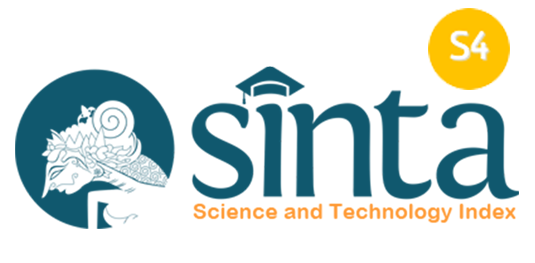‘Memanusiakan’ Tenaga Kerja Melalui Pendidikan, Problem Manusia Modern Di Era Industri
 PDF Download: 10
PDF Download: 10
DOI:
https://doi.org/10.32665/ulya.v1i1.1473Abstract
Indonesian factory labours deal numerous problems affecting their daily lifes, related to their individual and social needs. Economical chalenge in the global world made them to work as professionals, more over, as a machine. A labour has to concentrate and focus on the producing tools, alienating him self from his social evironment. The communication between a person and a tool is more often taken a place than communication between persons. As the result, their perpectives on other people tend to changes and this could trigger social problems. Social problems are much more complex than individual problems. It is much harder to identify a social problem than an individual roblem. A social problem exists because many people behave, individually, in a social unacceptable way. The resolution of social problems by traditional methods such as by motivating people or forcing them to behave more rationally is a frustating thing. It is the job of our education system and everyone involves. We have to create a better way of teaching, changing the paradigm on how we behave as a labour, for labours are not machine, they are human beings.
Downloads
References
Engels, Frederick, The Condition Of Working Class In England 1844, Mac Millan, New York, 1958.
Heidegger, Martin, Being and Time, terj J. MacQuarrie dan E. Robinson, Harper & Row, New York, 2001.
Landes, David S., The Unbound Prometheus: Technological Change and Industrial Development in Western Europe from 1750 to the Present, Press Syndicate of the University of Cambridge, New York, 1969.
Mulyanto, Dede, Kapitalisme: Perspektif Sosio Historis, Ultimus, Bandung, 2010.
Rivoli, Pietra, The Travel Of A T Shirt; Analisis Ekonomi tentang Pasar, Kekuasaan, dan Politik Perdagangan Dunia, terj. Gandi Faisal, Transmedia, Jakarta, 2007.
Weber, Max, General Economic History, terj. Frank H. Knight, Collier books, New York, 1961.
Downloads
Published
How to Cite
Issue
Section
License

This work is licensed under a Creative Commons Attribution-NonCommercial-NoDerivatives 4.0 International License.
 PDF Download: 10
PDF Download: 10













